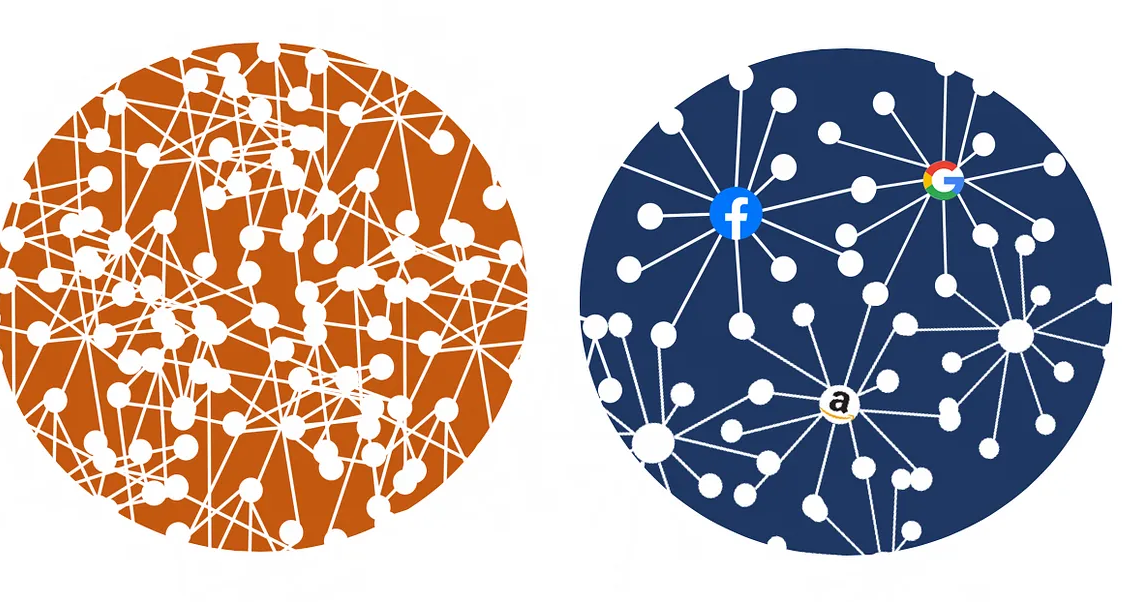
Once a thriving network of creativity, the vast power of the Internet has been consolidated by power brokers that thwart access, hinder economic growth, and reap disproportional rewards.
Today, the Internet has consolidated around network monopolies — with disproportionate amounts of traffic being mediated through Google, Facebook, and Amazon. Not only that, those companies have combined the strength of their networks with a calcified, winner-take-all business model — distributing the costs and risks of doing business across their networks while consolidating and reaping the profits privately. It’s abusive but it also limits the potential of this amazing technology to address pressing complex challenges facing us — and destabilizing society based on private, opaque algorithms that decide for us what we see.

It reminds me of the period when private toll roads were the norm — and toll collectors could charge whatever they liked to those passing through. Similar too where the railroad monopolies. That too consolidated power and wealth into the hands of the few. Eventually, the government took over this infrastructure, realizing that it was hindering economic progress by restricting access. Digital infrastructure is no different.
As digital becomes a bigger component of life, this restrictive, controlling governance structure disenfranchises both individuals and small businesses from taking part in the progress — and threaten our democratic ideals.


